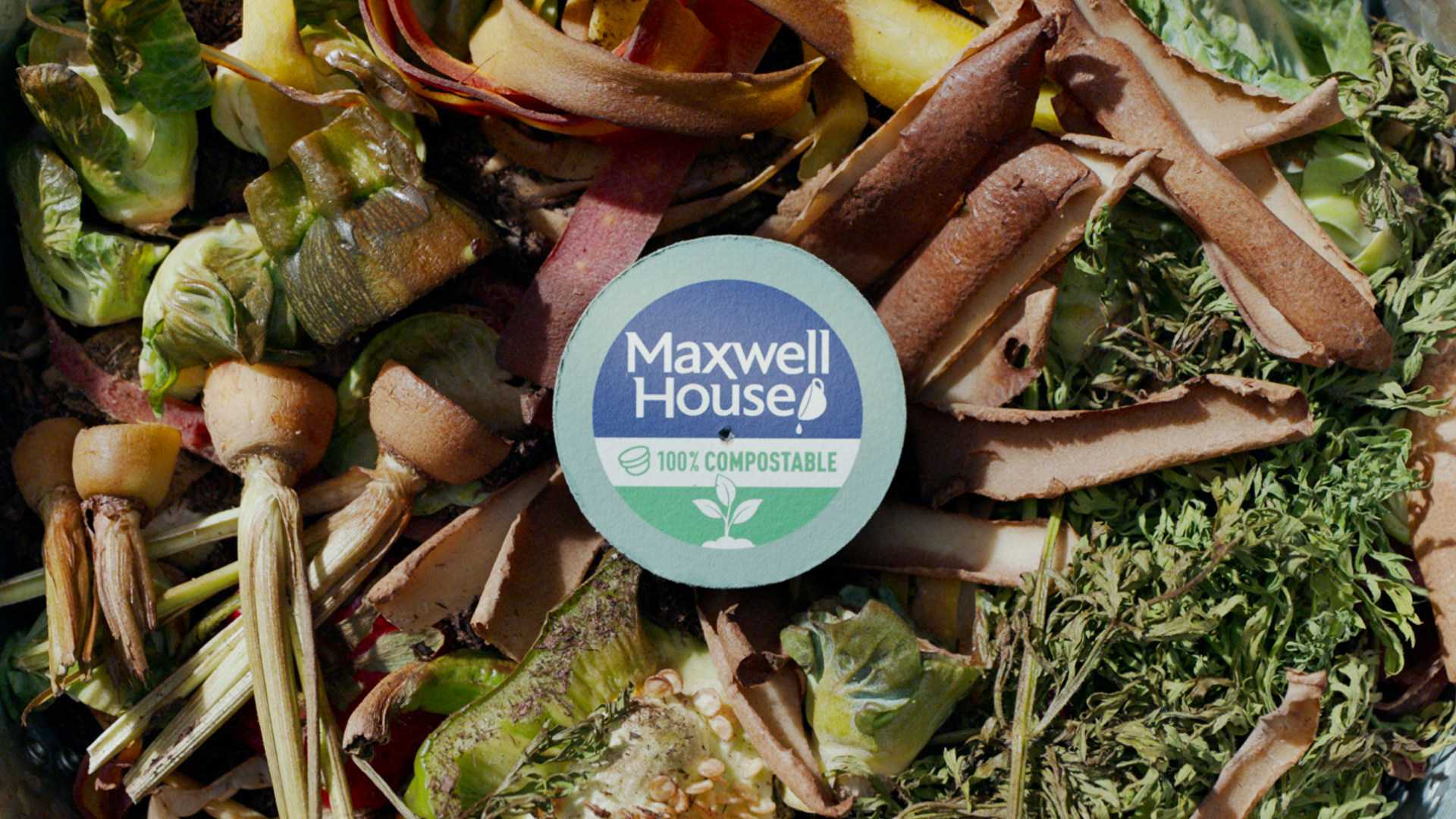TORONTO, Canada – Canadian icon Maxwell House is launching 100% compostable coffee pods to provide an alternative to the popular single-serve pods.
Made entirely from plant-based materials, all pod components and its inner bag are 100% compostable, plus the outer carton is 100% recyclable, leaving zero waste for the consumer. This helps Canadians reduce waste without sacrificing the convenience of single-serve pods or the rich flavour of Maxwell House coffee they know and love.
“We recognize the significant concern packaging waste presents and we are working collectively at all levels of our operations to explore alternative solutions,” says Nicole Fischer, Head of Sustainability, Kraft Heinz Canada. “Through ongoing collaboration with packaging experts, organizations and coalitions, Kraft Heinz Canada is working towards a circular economy to ensure real measures are taken to reduce single-use plastics and divert food waste from our landfills, limiting harmful impacts to our environment.”
With the launch of Maxwell House 100% compostable coffee pods, waste reduction is at the forefront, with sustainable packaging from beginning to end. It’s a simple one-step process: toss the pod into the compost bin and it will decompose into nutrient rich soil. Leaving zero waste for the consumer, the compostable coffee pods are made of 85% coffee grounds (real, actual coffee) with a paper lid, a coffee filter made from cornstarch and a plant-based compostable ring made from over 20% coffee bean husks.
Certified by the Biodegradable Products Institute, this designation verifies that the compostable coffee pod meets global scientific standards for industrial compostability and is formulated to break down in a period of about seven weeks. Gone are the days of tedious separation of recyclable pod elements, including the removal of the lid, ring, mesh filters and coffee grounds. Further, organization into the correct recycling and composting categories is no longer required.
Dr. Calvin Lakhan, industry expert and leading environmental researcher at Toronto’s York University says, “Both brands and consumers have a critical role to play in driving sustainability forward through innovative technology and developing solutions that balance the demands of modern society with the needs of the planet. By making the switch from traditional single-use plastic pods to compostable pods, we could help reduce plastics by the height of more than 4,000 CN towers annually.”
As a way to showcase the innovation, Maxwell House launched an immersive educational experience to highlight how the pods decompose. Located at stackt market in downtown Toronto, visitors can witness first-hand how the compostable pods break down over the next few weeks in a shipping container filled with 500 lbs. of shredded organic material, such as expired fruits and veggies, and the 100% compostable pods.
By the end of the process, all the pods used to create the experience will break down completely so all that is left is nutrient rich soil. Time lapse assets of the decomposition experience will also be shared with Canadians across social media to demonstrate the reality of the process. To learn more and witness the science behind the pods, visit @MaxwellHouseCA on Instagram, Facebook and Twitter.
The launch will also be supported with a national TV-led campaign spanning digital, social, PR, e-commerce and in-store activations.
Kraft Heinz will be releasing its 2020 Environmental, Social, Governance (ESG) report as part of its corporate citizenship and sustainability efforts in Fall 2020. The report highlights its commitment to sustainability, including the company’s aim to make 100% of packaging recyclable, reusable or compostable by 2025.















